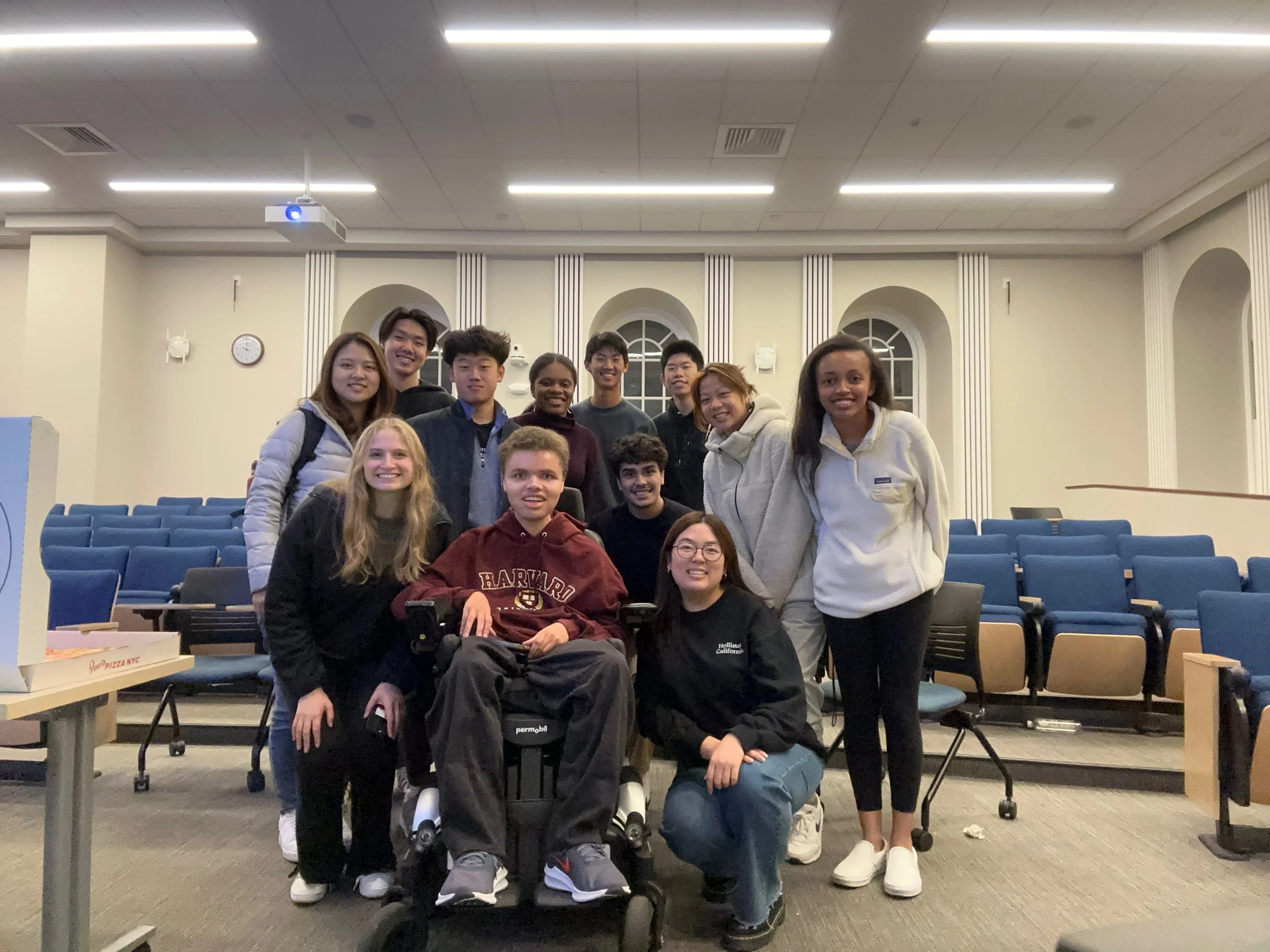Through the Lens of Justice: Healthcare Messaging for 2020
Henna Hundal & Sai Shanthanand Rajagopal
From Sen. Bernie Sanders’ (I-Vt.) ‘Medicare for All’ to Mayor Pete Buttigieg’s ‘Medicare for All Who Want It,’ political campaign messaging about healthcare provides insight into public interests and values. In the past decade, messaging strategies of Democratic presidential campaigns centered around the economic concerns of healthcare. For example, Hillary Clinton’s 2016 presidential bid framed Obamacare reform as a matter of “reining in the cost, which has to be the highest priority of the next president.” 1 Fast-forward to today and we see healthcare-related messaging in the 2020 Democratic presidential primaries shift: the presidential debates, coupled with The Henna Hundal Show’s interviews with ten candidates, demonstrate a new rhetoric describing the movement towards healthcare reform as a fight for justice, which is intimately tied to the battle for pharmaceutical regulations and youth-led social movements on the opioid epidemic. This shift towards healthcare messaging rooted in ethical appeals rather than economic arguments underscores a mounting moral outrage over systemic healthcare injustices.
To understand the evolution of this moral outrage and how contemporary political campaign rhetoric reflects it, it is helpful to examine messaging around the opioid crisis from past presidential politics. Government officials knew the Sackler family helped to propagate the opioid crisis by the mid-2000s; however, former President George W. Bush’s administration failed to jail any executives of Sackler-owned Purdue Pharma.2 Instead of lambasting the industry’s predatory practices, campaign messaging in this period concentrated on the economic implications of increasing services to those affected by the epidemic. Even during the 2016 election, Clinton focused on the economics of the issue, unveiling an ambitious $10 billion plan of “bottom-up policies,” or grassroots measures, such as boosting funding for after-school programs for teenagers in the opioid heartland and reducing the cost of emergency naloxone treatments (opioid overdose medication).3 Any mention of criminal prosecution of the Sackler family, later revealed to be Clinton Foundation donors, was conspicuously missing.4
After the extent of the Sackler family’s involvement in overprescribing opiates gained public notoriety in 2017, campaign messaging around the opioid crisis shifted to a top-down approach, as highlighted by The Henna Hundal Show’s candidate interview series.5 The new message is clear: The opioid epidemic will be rightfully addressed not only by dollars and cents directed to affected addicts, but also by justice vis-à-vis punishment of the Sackler family for their role in the crisis. The emphatic calls to hold the likes of the Sacklers accountable, embedded in the 2020 campaigns’ rhetoric, reflects a broader value set that recognizes that comprehensive healthcare reform is inextricably linked to correcting systemic injustices.
For example, during the show’s interview on healthcare with former 2020 presidential candidate Andrew Yang, the entrepreneur-turned-politician responded to a question about his policy platform for fixing the opioid epidemic by swiftly calling for criminal charges against the Sacklers.6 “We are still dealing with the plague that they unleashed on the American people. They were fined approximately $500 million, but they made approximately $16 billion,” he said. “The fact that the Sackler family still has not been held accountable strikes me as a deep failure of government.” In addition to calling for monetary accountability, Yang’s campaign messaging around healthcare centers on criminal accountability that would put the Sacklers “behind bars.” 7 This promise to utilize the justice system to hold the power brokers answerable for their offenses speaks to the heart of 2020’s strikingly ethics-oriented healthcare rhetoric.
In our interview, Yang also lamented that “the Sackler family name is on buildings at Harvard and Yale,” drawing from the momentum built by current student-led movements that demand that institutions reject the Sacklers’ donations.8 At Harvard, both student activists and the families of young people who succumbed to fatal opioid overdoses have fought to purge the university’s Arthur M. Sackler Museum of its evocative—and in their eyes, disgraceful— designation.9 These youth-guided rallying cries have been amplified as esteemed institutions like the American Museum of Natural History, the Solomon R. Guggenheim Museum, and the Metropolitan Museum of Art recently took a powerful series of stances against continuing to welcome Sackler money.10 In terms of the broader implications of this momentum, it is clear that youth have been at the forefront of changing the focus of healthcare conversations from expansion towards democratization of healthcare and reduction in the role of profit in its provision.11 In calling for corporate accountability in for-profit healthcare, as opposed to the economics-focused messaging of past cycles, Yang seemed to nod to the youth-driven shift in discourse around healthcare, democratic socialism, and predatory profit practices.
Rhetoric of healthcare justice extends to self-described centrists like former Rep. John Delaney (D-Md.), who terminated his presidential bid shortly before the Iowa caucuses. In an interview with The Henna Hundal Show, Delaney emphasized the need for criminal accountability of big pharma executives who try to profit from the system.12 “I think there needs to be criminal investigations into executives,” he said, “because unless you do that, you don't actually change behavior going forward … If they think they can just get away with paying fines, it's not really going to change things.” These calls for criminal charges against healthcare executives signal a conspicuous shift in messaging, whereby even many pro-business Democrats frame the next phase for healthcare reform as its disentanglement from money-mongering interests. This trend signifies a broad-based emphasis on ethics in 2020 campaigns’ healthcare rhetoric as compared to the budgetary-based talk of 2016.13
In an age when the opioid crisis claims the lives of 130 Americans daily, while big pharma appears to have weathered this epidemic largely unscathed, it follows that the presidential candidates would tailor their healthcare rhetoric to evoke a sense of moral indignation.14 Their messaging describes a new pathway forward for U.S. healthcare reform, as elucidated by the candidates, which requires taking the criminal power brokers out of play. In 2020, this development of an approach to healthcare messaging centered on ethics, as opposed to economics, expands the scope of the American refrain of ‘justice for all.’
About the Authors
Henna Hundal holds an A.B. in Human Developmental and Regenerative Biology from Harvard College. She previously served as a researcher at the Harvard University Center for AIDS Research and the Harvard Stem Cell Institute. She is the host of the health-focused, syndicated radio program The Henna Hundal Show.
Sai Shanthanand Rajagopal is an A.B./S.M. candidate at Harvard College studying biomedical engineering and women's studies. Sai is a Rhodes Scholar focusing on designing safe penile prostheses for transgender people as a researcher at the Center for Gender Surgery at Boston Children's Hospital.
References
- PBS NewsHour. Clinton vows to make health care more affordable [video file]. 2016 Oct 9 [cited 2020 Mar 1]. Available from: https://www.youtube.com/watch?v=YkKVaXqMUDo.
- Meier B. In Guilty Plea, OxyContin Maker to Pay $600 Million. The New York Times [Internet]. 2007 May 10 [cited 2020 Mar 1]; Available from: https://www.nytimes.com/2007/05/10/business/11drug-web.html
- Lopez G. Clinton wants a public health response to the opioid crisis. Trump wants more of the old drug war. Vox [Internet]. 2016 Oct 17 [cited 2020 Mar 1]; Available from: https://www.vox.com/2016/9/21/12973740/trump-clinton-opioid-heroin-epidemic
- Recognizing Our Generous Supporters [Internet]. The Clinton Foundation. September 2019 [cited 2020 Mar 4]. Available from: https://www.clintonfoundation.org/contributors?category=%2425%2C001%20to%20%2450%2C000&page=13
- Keefe PR. The Family That Built an Empire of Pain. The New Yorker [Internet]. 2017 Oct 23 [cited 2020 Mar 1]; Available from: https://www.newyorker.com/magazine/2017/10/30/the-family-that-built-an-empire-of-pain?verso=true
- Hundal H. 2020 U.S. Presidential Series: An Interview with Andrew Yang [Internet]. The Henna Hundal Show. 2019 [cited 2020 Mar 1]. Available from: https://www.thehennahundalshow.com/episodes/2019/03/03/2020-us-presidential-series-an-interview-with-andrew-yang
- Gage J. Yang Proposal could mean prison for owners such as Zuckerberg and Buffet. The Washington Examiner [Internet]. 2019 Mar 26 [cited 2020 Mar 1]; Available from: https://www.washingtonexaminer.com/news/yang-proposal-could-mean-prison-for-owners-like-zuckerberg-and-buffett
- Berger J, Isselbacher J. Harvard Students’ Project Honors Opioid Victims at Sackler Building. The Harvard Crimson [Internet]. 2019 Dec 9 [cited 2020 Mar 1]; Available from: https://www.thecrimson.com/article/2019/12/9/art-installation-sackler-protest/
- LeBlanc S. Parents Press Harvard To Remove Sackler Name From Art Museum. WBUR [Internet]. 2019 Apr 13. [cited 2020 Mar 4]; Available from: https://www.wbur.org/news/2019/04/13/harvard-sackler-family-art-museum
- Harris E. The Met Will Turn Down Sackler Money Amid Fury Over the Opioid Crisis. The New York Times [Internet]. 2019 May 15. [cited 2020 Mar 4]; Available from: https://www.nytimes.com/2019/05/15/arts/design/met-museum-sackler-opioids.html
- Haltiwanger J. This is the platform that launched Alexandria Ocasio-Cortez, a 29-year-old democratic socialist, to become the youngest woman ever elected to Congress. Business Insider [Internet]. 2019 Jan 4 [cited 2020 Mar 3]; Available from: https://www.businessinsider.com/alexandria-ocasio-cortez-platform-on-the-issues-2018-6
- Hundal H. 2020 U.S. Presidential Series: An Interview with Rep. John Delaney [Internet]. The Henna Hundal Show. 2019 [cited 2020 Mar 1]. Available from: https://www.thehennahundalshow.com/episodes/2019/10/27/2020-us-presidential-series-an-interview-with-rep-john-delaney
- Sheth S. Here's where Hillary Clinton stands on healthcare. Business Insider [Internet]. 2016 Oct 9 [cited 2020 Mar 1]; Available from: https://www.businessinsider.com/heres-where-hillary-clinton-stands-on-healthcare-2016-10
- America's Drug Overdose Epidemic - Data to Action [Internet]. Centers for Disease Control and Prevention. 2020 [cited 2020 Mar 1]. Available from: https://www.cdc.gov/injury/features/prescription-drug-overdose/index.html










Dr. Rose Molina is a board-certified Obstetrician-Gynecologist at The Dimock Center and Beth Israel Deaconess Medical Center. Dr. Molina holds a Master of Public Health in Clinical Effectiveness from the Harvard T.H. Chan School of Public Health, and is an Assistant Professor of Obstetrics, Gynecology, and Reproductive Biology at Harvard Medical School, where she is also the Faculty Director of the Medical Language Program and Health Equity Societal Theme. Additionally, Dr. Molina is a member of Ariadne Labs where she works to improve quality and equity in pregnancy care worldwide. As an AHRQ Learning Health Systems K12 scholar, she leads research on language barriers in pregnancy care and improving patient-clinician trust.